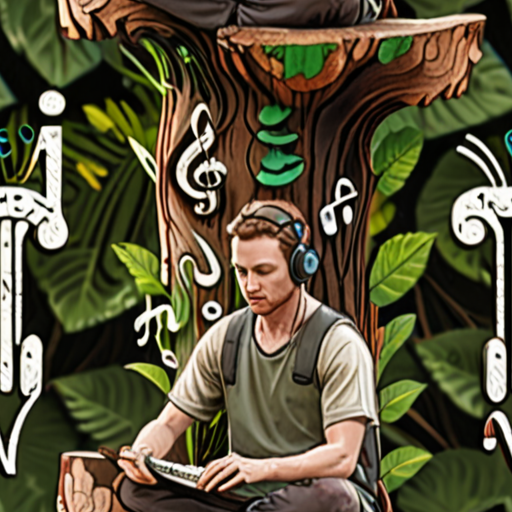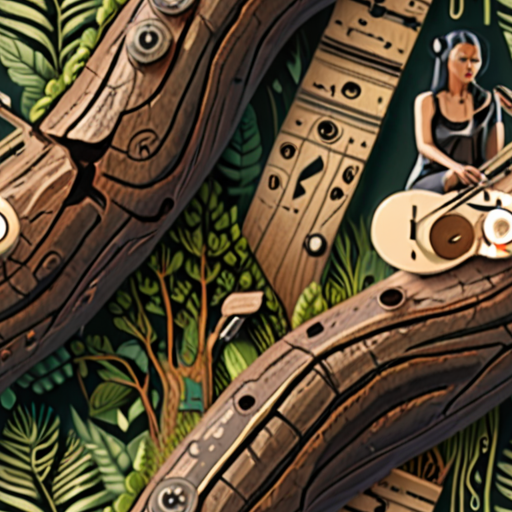For individuals seeking to develop their musical skills, understanding the art of practicing instruments is crucial. With numerous benefits associated with regular practice, from cognitive development and emotional intelligence to social skills and confidence building, it’s essential to establish effective habits and routines. However, determining the ideal approach can be challenging, especially for those new to instrumental learning. In this comprehensive guide, we’ll explore the intricacies of practicing instruments, providing valuable tips and techniques for musicians of all levels.

Practicing Your Instrument: Tips and Techniques
We’re excited to share our expertise on how to practice your instrument effectively.
-
Set Clear Goals
Establish what you want to achieve through regular practice sessions. Whether it’s mastering a new technique, improving your tone, or increasing your speed, having a clear goal in mind will help you stay focused and motivated.
-
Create a Schedule
Plan out your practice sessions in advance, setting aside dedicated time each day or week to work on your instrument. Consistency is key to making progress and developing muscle memory.
-
Warm Up and Stretch
Before diving into intense practice, take a few minutes to warm up your hands and fingers with simple exercises. This will help prevent injuries and get you ready for more challenging tasks.
-
Break Down Complex Pieces
When learning a new song or piece, break it down into smaller sections and focus on mastering one part at a time. This will help you build confidence and develop a deeper understanding of the music.
-
Practice with a Metronome
Using a metronome can help you improve your timing and rhythm, allowing you to play along with a steady beat and develop a stronger sense of musicality.
-
Listen and Record Yourself
Regularly listen to recordings of yourself playing and identify areas for improvement. This will help you develop a critical ear and make adjustments to your technique accordingly.
-
Stay Motivated
Find ways to stay engaged and motivated during practice sessions, whether it’s by rewarding yourself after reaching certain milestones or finding a practice buddy to work alongside.
-
Seek Feedback and Guidance
Don’t be afraid to seek feedback from teachers, mentors, or peers. Constructive criticism can help you refine your skills and overcome plateaus in your development.
By incorporating these tips and techniques into your practice routine, you’ll be well on your way to becoming a skilled musician and achieving your goals.
Additional Resources:
- Music Tips and Advice
- Instrument Care and Maintenance
- Sample Practice Routines and Schedules
The Hardest Instrument to Learn
We’ve all been there – fascinated by the sounds and techniques of various instruments, yet intimidated by the prospect of learning them ourselves.
- Piano
- Guitar
- Violin
- Drums
- Cello
Why Piano is Considered One of the Hardest Instruments to Learn
The piano requires coordination between both hands, which can be challenging for beginners. Each hand needs to play a different melody or chord progression, making it difficult to develop muscle memory and finger independence.
- Hand Independence: Developing separate finger movements for each hand takes time and practice.
- Reading Music: Understanding sheet music notation and recognizing patterns is essential for playing the piano.
- Finger Dexterity: Building finger strength and dexterity through exercises and songs helps improve overall technique.
- Ear Training: Developing musical ear and recognizing intervals, chords, and melodies enhances overall musicianship.
Other Challenging Instruments
While piano may be considered one of the most difficult instruments to learn, others like violin, guitar, drums, and cello also present unique challenges.
- Violin: Mastering intonation, bowing techniques, and left-hand pizzicato requires dedication and patience.
- Guitar: Developing fingerstyle techniques, understanding chord progressions, and mastering barre chords demands consistent practice.
- Drums: Coordinating limbs, developing rhythmic accuracy, and building endurance require intense physical training.
- Cello: Producing a rich, resonant sound, navigating complex fingerwork, and developing left-hand pizzicato skills take time and effort.
Conclusion is Not Necessary

The Easiest Instrument to Learn
We’ve often been asked which instrument is the easiest to learn, and our answer might surprise you.
- The ukulele is often considered one of the easiest instruments to learn due to its soft, gentle strings and relatively simple chord shapes.
- Another contender for easiest instrument to learn is the harmonica, which requires minimal equipment and can be played in various styles.
- The recorder is also a popular choice for beginners, with a limited number of notes and a simple fingerings system.
- Lastly, the autoharp is a great option for those who want to learn chords quickly, as it has a built-in mechanism for changing keys.
When choosing an instrument, consider factors such as personal interest, available space, and budget. Ultimately, the easiest instrument to learn is one that sparks joy and motivation to continue practicing.
Why These Instruments Stand Out
Each of these instruments has unique characteristics that make them accessible to beginners:
- The ukulele’s soft strings reduce finger fatigue, allowing for longer practice sessions.
- The harmonica’s portability makes it easy to take anywhere, and its compact size encourages experimentation with different playing styles.
- The recorder’s simplicity means fewer notes to memorize, making it easier to focus on technique.
- The autoharp’s built-in mechanism streamlines chord changes, freeing up mental energy for musical expression.
Tips for Learning Any Instrument
Regardless of which instrument you choose, remember these essential tips:
- Set achievable goals and practice regularly.
- Finding a teacher or online resource can provide valuable guidance and support.
- Experiment with different genres and styles to keep learning fun and engaging.
- Don’t be afraid to make mistakes – they’re an essential part of the learning process!

Why Practicing an Instrument is Crucial
As a musician, I can attest that practicing an instrument is essential for growth and development.
-
Developing Muscle Memory
Muscle memory plays a significant role in mastering an instrument. By consistently practicing, you’ll develop the ability to perform complex techniques without conscious thought, allowing you to focus on expression and creativity.
-
Becoming Familiar with the Instrument
Practicing helps you understand how your instrument works, including its mechanics, tuning, and maintenance. This knowledge enables you to troubleshoot issues and make adjustments as needed, ensuring optimal sound quality.
-
Improving Hand Strength and Dexterity
Regular practice strengthens your hands and fingers, enabling you to play with precision and control. This is particularly important for instruments like the piano, guitar, and violin, which require intricate fingerwork.
-
Enhancing Cognitive Abilities
Playing a musical instrument has been shown to improve cognitive skills, including memory, spatial-temporal skills, and language development. Regular practice stimulates the brain, promoting overall mental well-being.
-
Fostering Creativity and Self-Expression
Practicing an instrument allows you to express yourself creatively, exploring different genres, styles, and emotions through music. As you become more confident in your abilities, you’ll discover new ways to convey your thoughts and feelings through sound.
-
Building Discipline and Perseverance
Consistent practice requires discipline and perseverance, helping you develop a strong work ethic and resilience. These traits benefit not only your musical journey but also other aspects of life, such as academics and personal relationships.
By incorporating regular practice into your routine, you’ll unlock a world of possibilities, from technical mastery to emotional expression and personal growth.
Playing an Instrument: Unlocking the Power of Brain Development
When we play a musical instrument, our brains undergo significant changes that can have a lasting impact on cognitive function and overall well-being.
-
Cognitive Benefits:
- Improved memory and concentration
- Enhanced spatial-temporal skills
- Better language development and literacy
-
Neuroplasticity and Adaptation:
- The brain’s neural pathways are reorganized and strengthened through consistent practice
- New connections are formed between neurons, leading to increased efficiency and adaptability
-
Emotional and Social Benefits:
- Reduced stress and anxiety levels
- Improved mood and emotional regulation
- Enhanced social skills and communication abilities
-
Long-Term Effects:
- Delayed onset of age-related cognitive decline
- Increased gray matter volume in areas responsible for motor control and sensory processing
By incorporating music-making into our lives, we can tap into the incredible potential of our brains and unlock a world of possibilities for growth, creativity, and self-expression.

About Music Enthusiasts
We’re excited to share our passion for music with fellow enthusiasts who appreciate the art of playing instruments.
- The majority of people have played an instrument at some point in their lives, with approximately 40% of adults in the United States having played a musical instrument during their lifetime.
- A study found that 27% of Americans aged 18-24 had played a musical instrument in the past year, compared to 15% of those aged 65 and older.
- According to a survey conducted by the National Association of Music Merchants, 71% of households in the United States own at least one musical instrument.
- While the number of people playing instruments may vary depending on factors such as age and location, it’s clear that music remains a significant part of many people’s lives.
Why People Play Instruments
There are many reasons why people choose to play instruments, including:
- To express themselves creatively and emotionally
- To develop cognitive skills such as memory and concentration
- To relieve stress and anxiety
- To connect with others through shared musical experiences
Conclusion
In conclusion, playing an instrument is a popular activity among people of all ages and backgrounds. Whether it’s for personal enjoyment, social connection, or cognitive development, music has the power to bring people together and enrich our lives in meaningful ways.
0 Comments